Maria Savva's Blog - Posts Tagged "memoir"
Meet musician and author, Bill See, and enter to win a copy of '33 Days'!

I am very excited to be introducing you to my guest today. Bill See is a talented musician and gifted writer. His band Divine Weeks made a bit of a splash in the LA music scene in the late '80s and early '90s. They toured America and Canada for a month in the 1980s, and that tour is documented in his book, 33 Days: Touring In A Van. Sleeping On Floors. Chasing A Dream..
As you can tell from the title of the book, Divine Weeks was not a major label rock band that stayed in plush hotels when they toured; Divine Weeks were a grass roots, indie band, touring because of their passion for music. They were four young men willing to take risks to chase a dream. The book is an inspirational memoir. Bill See's words exude wisdom. He is a man with an enthralling story to tell about his experience as an indie musician, and about his life journey.
Anyone who has ever had a dream will be able to relate to Bill's book.
I met Bill through Bookpleasures.com. He had requested a review of his book, and being a music fan, I could not resist reading it. I'm glad I did. It's now one of my favourite books.
As well as taking the time to answer my questions, Bill has very kindly agreed to give away an ebook copy of 33 Days to one of my blog followers, this is an international giveaway. (If the winner is from the US or Canada he/she will have the choice of either an ebook or paperback!).
To enter, all you have to do is 'like' this blog post or leave a comment below!
A winner will be chosen on 20th July 2011.
Here's the interview:

I read on your blog that you do not consider yourself an author and that you put 33 Days together to document the Divine Weeks tour. When I read 33 Days, I felt like it was written by a born writer. I definitely think you have a talent as an author. Have you ever dabbled in other writing, apart from writing song lyrics?
That's very kind of you to say. That's just my self effacing humor. I've always written. After all, "33 Days" is taken from the journals I kept at the time. I guess I just meant I'm a musician first and never fashioned champion myself as an author per se.
One very interesting thing about 33 Days is the way it’s like an interactive read because you have a website where fans of the book can listen to the band’s music and there are also lots of photographs of the tour contained in the book. I have listened to the free mp3s on your website and really enjoyed the tracks. Are Divine Weeks’ albums still available to purchase, or do you have any plans to re-release the songs?



Divine Weeks' first record "Through and Through" is out of print, but you can find copies on ebay all the time. Maybe it'll get reissued thanks to the book. That would be a nice bi-product. Our second record "Never Get Used To It" and the singles that were released around that time are available on itunes and amazon, I think. I did try and make the reading experience interactive and the 33 Days website is designed for that purpose, but the truth is I initially thought about making "33 Days" fictional or just slap a "base on true events" tag on it because I didn't want the book to be limited or relegated to the band memoir scrap heap. Because it's not a conventional story about a band's conquests on the road. If anything, it sets out to debunk a lot of rock and roll myths and show what it's really like at the most base level and show that, like a lot of other tragically under appreciated bands, we made music because it hurts too much not to.

Your bio states that you released 5 solo records. Can you tell us a bit more about those?
After Divine Weeks broke up, I spent a lot of time staring into my ceiling trying to figure out what to do next. I spent a few years dabbling in different genres and my first solo record "Lovecoats" reflects that. Kind of all over the map. "In Sickness and In Health" was my second record and as the title suggests is sort of me musing on the mysteries of marriage. After that I did a record called "That Mercury Sound" which is a more a soundscape record. Soundtrack stuff. Then I did a record called "Union" which was my response to 9/11 and George W. Bush's America. And the last thing I did was "Hillflower Grace" which is about love, intimacy, and finding out my heart was still capable of loving and being loved. It's funny, after making music for 25 years I'd never really done a record completely about love. I've always said if you want to know something about me listen to my music. It's all there. I don't write lyrics so it makes you feel like you're reading tea leaves. My life is all there in the songs and my records all capture a time and place and specific portion of my life. And as I say at the end of "33 Days," I'll be making music until my last breath. Whether it's music that ends up on the radio, on record or just stuck in an old shoe box stuck in the back of my closet. I'm a lifer.
From reading 33 Days, I got the impression that the month you spent together as a band touring was pretty intense and emotional; you all learnt a lot about each other. Do you still keep in touch with the other band members?
Well, we grew up out there on the road. Our lives were changed. It's impossible to deny or play down an experience like we had. I can't say we knew what was in store for us when we left, but we did leave town all feeling like it was going to be a watershed moment if just let it. And it was. We all had a lot of baggage we tried to leave behind, but it followed us anyway. We were 22 and facing big nagging life decisions. Rigid cultural expectations, stultifying family dynamics, decisions on school, deteriorating relationships. Had we not been best of friends first, maybe things would have been simpler albeit lonelier. "33 Days" is as much about friendship and finding out what you're really made of for the first time in your life. And that's why I chose that time period for the book because there's nothing like that 22 year old voice -- first time out on your own and no where and no one else to turn to but each other. So to answer your question, yeah, I'm in touch with the band. It's like having war buddies who share near death experiences. It makes for life long bonds.
Divine Weeks certainly seemed to create quite a stir in the LA music scene in the late ‘80s. Are you still quite well known as a musician out there? And, since releasing the book have you re-connected with any old Divine Weeks fans

Divine Weeks had modest success. We were a big deal around L.A. for a time but on a relative scale. We were not a big major label band. I'm not well known so much anymore, but sure, the book has stirred some interest, and I've been reacquainted with some folks who followed us back in the day. I've got a lot of friends who were in bands that had more success so in promoting "33 Days" I've tried to make it clear the book is not the Divine Weeks story. I didn't set out to try and prove my case that Divine Weeks not making it was some great act of injustice. Basically I wanted to write a book about a moment at the crossroads of our lives. That now or never moment we all have at about 22 where we have to seize or moment or fold up our tent. "33 Days" is for two distinct audiences. For those of us in our 40s or beyond, it's supposed to make you sit up in the middle of your life and ask yourself did you seize your moment? And it's for kids in high school or college just coming up to that crossroads, and it's a cautionary tale about the perils of sitting on your dreams.
Many bands from the ‘80s have regrouped for reunion tours lately. Have you ever considered doing this with Divine Weeks?
Divine Weeks regrouped for one show in 2004 as a send off to our bass player George Edmondson before he headed back east to become a professor at Dartmouth. I'd never play a Divine Weeks show without each original member of the band in place. Our guitar player Rajesh Makwana and I played a few Divine Weeks songs as part of my book release party here in L.A. last month, and it was a great to revisit those songs, but no, unless it was all four of us, I could never call it a Divine Weeks show.
[image error]
For those who may not have heard of the band, or listened to the free mp3s on your website, how would you describe Divine Weeks’ sound?
Divine Weeks was a live band. Very physical, visceral band. In the book I called us musically close to The Who at Woodstock circa 1969 crossed with early REM. That's a fairly close description but probably still not quite there.
Many people have been comparing the recent changes in the indie book publishing world (the advent of ebooks, and self-publishing becoming more acceptable) with the way the indie music scene broke through into the mainstream. As someone who has experience in the indie music scene, what is your take on this?
I think there's a lot of similarities so far as technology opening up the possibilities to authors in the same way the internet fazed out total reliance on the middle man in music. That being record companies, record stores and distributors. The music business was revolutionized by the internet whereas in the publishing world, we're still in the early transition period so it remains to be seen whether we'll see the same overhaul or not. I think it'll depend on how the publishing world reacts to it. History has already shown us the music industry reacted slowly and arrogantly to file sharing. For all the talk of the morality of illegal downloading, the music business itself has only itself to blame. File sharing and illegal downloading was the reaction of consumers who didn't want to pay $20 for a CD that had only one good song on it. I don't know if you can make an equal comparison with the publishing industry, but certainly the insular world of publishing elicited a similar level of outrage from aspiring authors. So, we'll see.
In your opinion, is it easier or harder for a new band to make it in the music industry these days than in the 1980s?
I think the answer is, “making it” has been redefined. I mean, it all comes down to motives. If flying around in Leer jets is your standard of success, well, that takes a lot of money and hype behind you, so you'll probably have to find a major label and then pray for a lot of luck. But honestly, the old model of getting signed to a major record label and slowly building a body of work over a number of albums is a thing of the past. It's all about "the song" now. With the music industry in such a state of flux, “making it” is such a relative term now. What’s happened the last 10 years in the music business is the full maturation and modernization of the original D.I.Y. indie credo: eliminating the middle man, no longer having to be reliant on record labels, radio stations and traditional media outlets. Going indie is not just some middle finger to corporate America. It’s actually the only logical choice. But you can’t be afraid of work, rejection, and learning how to become web savvy.
I imagine that as a musician you keep up to date with the current music scene? I saw your video on YouTube about the music scene in LA back in the ‘80s. How much has it changed since then?
Well, you have to keep in mind, I came by way of the punk rock D.I.Y. movement of eschewing major labels, putting out your own records and booking your own tours. I was inspired by the whole idea that success doesn't come to you. You go to it. So while a lot of my peers in the 80s sat home making demo after demo and sending them off to big record companies who didn't know what they were doing, I was following the breadcrumbs left on the highway by bands like Black Flag, the Minutemen and Husker Du. The culture was to do it yourself. Get in a van, and take it to the people, forget staying in hotels, ask from the stage for a floor to sleep on. That's still going on for a lot of young bands. What's changed is the internet.
It's revolutionized everything and empowered indie bands everywhere. With a mobile network, laptop, and printer, you can make CDs, stickers and t-shirts from the back of your van, and consequently you can actually make some money while on the road. With Facebook, Twitter and YouTube you can get the word out about gigs, post live clips, release new downloadable songs anytime you like – self-promoting with little or no overhead cost.
It’s a new world now with bands finding alternative ways to get the word out. Some are still hitting the highways like always and some are “touring” virtually by monetizing its videos on YouTube. It's an exciting time. We’ll see where we are in 10 years as bands continue to evolve the new paradigm of touring, weaning themselves from reliance on labels and reestablishing an intimate connection with the audience.
What music do you enjoy listening to these days? Do you have any favourite bands?
Arcade Fire is the best big band in the world right now. And they still seem hungry. The proverbial sky is the limit for them. Anything Jack White does I love. I like Death Cab for Cutie's new record. Wilco has a new record coming out without a major label behind it that I'm looking forward to. I didn't love Radiohead's new record, but I'm still a fan. I'd like to see a strong willed producer come in and order them around for their next record. The Kings of Leon next record will be telling. They're at the same place U2 was in the mid 80s before they made the Joshua Tree. They could become the biggest band in the world with the right record, but we'll see how bad they want it.
CDs or mp3s/downloads? Which do you prefer?
I still listen to vinyl and cassette tapes! But I do listen to CDs, I do download MP3s, and I do love my ipod. So as a music fan, I welcome anything that improves the listening experience. For the music maker, taking a historical perspective, I'm saddened that the art of album making is dying. I'm a fan of bands and artists who show over the course of an entire album where they are and where they're headed.
In the mid-90s with FCC deregulating media and the rise of media conglomerates people forgot that record companies were beholden to radio, who were beholden to advertisers, so radio would hone in on only a snippet of a song. Radio would go back to labels and say your music didn’t test well and ask bands what else they had. So, it really became the search for THE SONG. Not a body of work. “What’s that song?” Not WHO does that song. We don’t care about a band’s career anymore. What we care about is hunting and gathering. We’ve got to have it. Not much different than the search to find the shades or shoes you saw Angelina Jolie wear in her latest movie. Gotta have it.
What was the last CD/mp3 you purchased?
Can't remember which was the last, but it was either the new Death Cab for Cutie's record or Adele's "Rolling In The Deep." I'm late to the Death Cab for Cutie party, but like their new record. And I love Adele's voice and love that she doesn't have a perfect pop star body.
Do you have any tips for musicians who may be starting out now and maybe planning a similar tour to Divine Weeks’ 1987 tour?
What did Bette Davis say? "Growing old isn't for sissies." Same thing for trying to make it on your own in the music business. It ain't for sissies. Basically it comes down to motives. If making music to you is art and a source of salvation and sustenance, going indie is a true viable option now. Forget trying to get signed to a major label and forget trying to get played on commercial radio. That old model is dead. Don't sit there waiting to be discovered. Go out there and make it happen. Don't tell me you would if you the had time or the know how. Those are just justifications for inaction. What’s happened in the last 10 years in the music business is the full maturation and modernization of the original D.I.Y. indie credo: eliminating the middle man, no longer having to be reliant on record labels, radio stations and traditional media outlets. But you can't be afraid of work. You've got to be web savvy, singular minded and committed to your goals, and reconcile that success is relative and something you have to define for yourself. Going indie is not just some middle finger to corporate America. If you know what you're doing and if you align yourself with band members that share your desire and vision, you can make a sustainable living now out on the road. What's great is there are so many resources to get tips for how to do it now. When we headed out on our first tour, all we had was word of mouth.
Your book is ultimately all about following your dream. What is your dream these days?
I spent 12 years writing my book so that, at the end of the day, I had exactly the story I needed to tell. No compromises. The motive was to be completely at peace before I let it go. That's something I knew I needed to achieve in order to be in the proper frame of mind to try and sell the movie rights. "33 Days" is filled with these made for the movies set pieces. I didn't set out to make it like that. It just naturally worked that way. So that's the next dream, I guess. And you know, it would be odd seeing someone take something so close and intimate and change it, but hey, I wrote the story I needed to tell and if someone buys the movie and changes it, this would be a good problem to have.
Do you have any tips for someone who is considering self-publishing their own book?
Don’t wait until you publish to start researching marketing and publicity. The one concession I’d make to commerce over art would be titling the book. That’s the number one search tool. Really think about the keywords people would use to find not just your type of book but things that may be connected to it and get those in your title. Utilize facebook, twitter, youtube and have an interactive website. And most importantly, don’t let go of editing the book until you are truly at peace with it. Because if you put yourself in the position of standing there waiting for someone to validate something you’ve poured your heart and soul into it’s like — holding out a beggar’s bowl and letting what’s dropped in there determine the value of your creation. And that — is a bad scene.
Who are your favourite authors and what is it about their writing that you like?
Well, of the classics, I love Kerouac, Salinger, Bukowski. These are authors that kind of shoved me out the door and hunger for experience. Of the more current ones, I really dug Mark Edmundson's "The Fine Wisdom and Perfect Teachings of the Kings of Rock and Roll" and Mahbod Seraji's "Rooftops of Tehran." Both are great modern day coming of age stories. I tend to gravitate to that genre and like I said, "33 Days" is modeled on that.
Is there a book you own that you’ve read more than once?
Gosh, several. "To Kill A Mockingbird," "On The Road," and "Catcher in The Rye," to name a few.
What was the last book you read?
Rob Sheffield's Love Is a Mix Tape. Very moving, very funny. Highly recommended.
Are you reading a book at the moment?
I'm reading the new Bob Mould book. He's a personal hero of mine. Plus it's put out on my old friend Reagan Arthur's company who also put out Tina Fey's book. I love to see great things happen for great people.
What do you think of ebooks?
I love them. I have my Kindle, and it's really made me get back into reading all the time. I think for self published authors, it's great because it's so affordable to produce and get out there. I don't agree with the criticism I hear from other self published authors who say we shouldn't sell ebooks for $2.99 or $1.99 or whatever because it makes it impossible for people selling them for what the major publishing houses sell them for. I think that's short-sighted. Especially if we're talking about a first book. It's all about getting as many eyes on your book as possible, building a brand name, and then slowly building a body of work. If you got into self publishing to make money, good luck to you, but personally I'd rather have people actually read my book than be obsessed over my profit margin.
What are you working on now?
To be honest, publicizing "33 Days" is a full time job. I had no idea finding time to write the next book would have to take a back seat like it has. It's frustrating on one level, but for me, I've always moved onto the next project too soon and not stood up for my stuff. I'm not going to let that happen with "33 Days." I believe in this story and I want to see the book get its just due and maybe get it on the big screen.
Where can people buy your book?
All the links to buy the book are on the 33 Days website at http://www.33daysthebook.com/
The ebook is at:
Amazon
Barnes and Noble
Smashwords
ibookstore
The paperback is at:
Lulu.com
Amazon
Thank you Bill, for answering my questions. It was a pleasure to chat with you.
Remember, you can enter to win a copy of Bill's book by 'liking' this blog post, or leaving a comment below. Good luck!

Published on July 06, 2011 13:33
•
Tags:
33-days, author, author-interview, band, bill-see, book, coming-of-age, divine-weeks, ebook, giveaway, inspirational, interview, kindle, memoir, music, smashwords, your
Introducing, Sandra Yuen MacKay, author of 'My Schizophrenic Life' & enter to win an ebook!
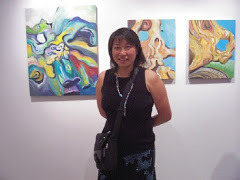 My guest this week is the multi-talented Sandra Yuen MacKay. She is an artist and writer. I first connected with Sandra via Goodreads over a year ago.
My guest this week is the multi-talented Sandra Yuen MacKay. She is an artist and writer. I first connected with Sandra via Goodreads over a year ago. When I read her memoir,My Schizophrenic Life: The Road to Recovery From Mental Illness, I was in awe at how someone who had battled through a mental illness was able to achieve so much. She is a special person and a kind and generous friend. I'm happy we became friends, and would recommend that everyone read her memoir if only because it blows away some myths surrounding mental illness and tells the story through the eyes of someone who lives with the struggle and is able to stand as an inspiration and role-model for others.
As well as agreeing to answer my questions, Sandra is giving away an ebook copy of her memoir, or her new book, Hell's Fire, to one lucky reader of my blog. All you have to do to win is leave a comment below, or simply 'Like' this post, and we'll enter you into the draw. A winner will be picked at random on the 1st October 2011.
Here's the interview:
Do you have any tips for someone who is considering self-publishing their own book?
Self-publishing isn't for all writers. Ask yourself, how much money, time and effort are you willing to put into it? Self-publishing gives you control over the content and design of your book and also a larger profit per book sold. If you do self-publish, make sure you edit and proofread your work closely or find someone to do it beforehand. Having said that, you may have a quality book but you still need to promote it.
Weigh your options. If you are concerned about upfront costs consider print on demand or e-books. Do you need an ISBN and do you need to register it? BestsellerBound, an indie website, may connect you with other self-publishers who can answer questions you may have. Word of mouth and building a professional website are a good starting point. Free book giveaways or blog tours may be useful. Even if you have a traditional publisher, you still should promote yourself.
Your book ‘My Schizophrenic Life’ deals with your personal journey and road to recovery from mental illness. I think it’s a book that should be read by mental health professionals as it gives insight into what someone with schizoaffective disorder is thinking and feeling. Have you had any feedback from any psychiatrists or psychologists who may have read the book and if so, what sort of comments do they have?
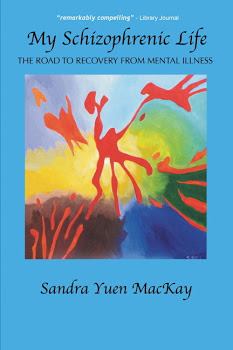
Yes I have. David Laing Dawson, a psychiatrist, writer, and filmmaker wrote: "Puts the reader nicely in her shoes experiencing the paranoia, misinterpretations, hallucinations."
Julie Holland, a psychiatrist and author in New York wrote: "There are precious few people who have experienced psychosis and can convey it accurately, clearly, and concisely. Sandra MacKay's story is an important one for all of us in the mental health field - doctors, patients, and their families. It is imperative that we take in the lessons she is imparting to us all, on how to manage, and in many ways, triumph over chronic mental illness."
I've received many favourable comments from people in the health field including occupational therapists and psychotherapist Laura Schultz (see link below for reviews).
You have suffered from your mental illness since you were a teenager. Do you think the mental health system (doctors/hospitals) has improved in the time since you were first diagnosed? Also, what do you think they could be doing better?
Previously, medication and electric shock treatment were the most common ways to treat the mentally ill. Since then, they introduced the recovery model, which puts the client first and is built around his or her needs and goals. Health professionals are moving toward a more holistic approach to treating clients. In Vancouver, BC, there seems to be more community supports and organizations to help people with mental illness. There's more community awareness and education in schools to reduce stigma. However, I'd like to see better medications without major side effects and more access for family members and caregivers to get support.
I understand that your creativity helped you to some extent when you were going through difficult times. I also know that you are or were involved in a project that offered creative classes to people with mental illness. In what way would you say creativity helps someone with mental illness?
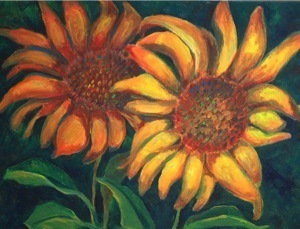
There is a longstanding belief that mental illness and heightened creativity are linked. Personally, I see an association between my imagination and motivation to write and paint, and my illness. Creativity is a constructive outlet for my positive and negative energies.
[image error]
What is the one message you would like readers to take from your memoir?
People with mental illness aren't so different from everyone else despite our portrayal in the media. With the right treatment, there are people with mental illness who function well and contribute to society. I could have fallen by the wayside, but I received support and developed insight into my symptoms.
I know that you’re an artist as well as a writer. I have enjoyed looking at your art work on your website and of course, the cover of ‘My Schizophrenic Life’ is one of your paintings. You have a distinctive style, very colourful and eye-catching. If you had to choose between writing and art, which would you choose?
[image error]
That's a difficult question to answer! I seek variety in what I do. My creativity comes in cycles. Sometimes I paint for days, sometimes I'm really involving in a writing project for months at a time. I don't prefer one over the other, but rather do both at different times.
Do you have any favourite artists? If so, what is it about their art that you like?
As I have a background in art history, there are a lot of major artists and movements I appreciate. However, I particularly enjoy the Fauvists, Expressionists, and many Canadian painters like Tom Thomson, Jack Shadbolt and Gordon Smith. Each of these artists has given me something in the development of my own style especially in the use of colour.
Your latest book is a fiction story. ‘Hell’s Fire’ is a science fiction novella. Is science fiction your favourite genre to write, or have you tried writing other genres?
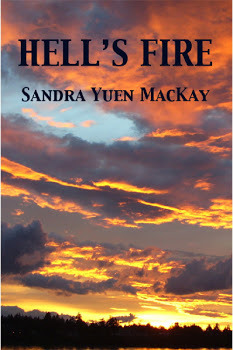
I've written other unpublished stories in different genres. Some explore mental illness, culture, romance, murder, suicide and the paranormal. So I haven't limited myself to one genre however, all of these stories have pieces of my own experience or what I've observed in others.
Who are your favourite authors and what is it about their writing that you like?
I enjoy Margaret Atwood, Jeffrey Archer, Arthur C. Clarke, and Lorna T. Suzukiwho wrote the Imago series. I might add Maria Savva to that list as well! Each of these writers has the ability to wind a tale that totally engrosses me as a reader without a lot of fluff. Reading diverse genres suits my tastes.
Is there a book you own that you’ve read more than once?
I don't own it, but I've read The Handmaid's Tale by Margaret Atwood more than once. I've also read Stephen King's On Writing over again.
What was the last book you read?
Recently, I read Kathryn Stockett's The Help. I liked the way the point of view changed between chapters. Each narrator has a unique voice and personality. Also reading about the racial tension and struggle struck me deeply.
Are you reading a book at the moment?
Currently I'm reading The Girl Who Played With Fire by Stieg Larsson. I find it interesting to see how the characters develop and change over time.
What do you think of e-books?
I don't own an e-book reader but more people are moving that way. Some people still say they prefer to hold a book in their hands, but technology is moving to more paperless communication. I envision e-books in the future that are more interactive where readers can click on words or phrases and link to other trivia sources, or choose the character's next move, complete quizzes, and communicate with authors.
How important are reviews for you as a writer?
Reviews inform potential readers about the quality of a book, which may increase sales. In turn, reviews give me objective feedback, which hopefully can aid me in fine-tuning my future writing.
How do you go about choosing a cover for your books?
For My Schizophrenic Life and Hell's Fire, I designed the covers using my art and photography. The cover may be the customer's first impression of one's book so they have to stand out on the store shelf. I choose images that are a unique, refer to the content in a way, and as you said are "eye-catching."
Are you working on any other books?
I recently submitted a manuscript to some publishers. It's a novel about a Chinese girl who sacrifices for her sister when her parents divorce. Other than that I'm mostly working on my editor's column for "Majestic," an online newsletter for Lit.org, a writers forum.
Do you have any upcoming events that you’d like to tell people about?
On November 1st after 7 pm Pacific Time, I'll be on a Sound Therapy radio broadcast at CJSF 90.1 FM in Burnaby, British Columbia. I will be selling my book and art at some local art fairs if you live near Vancouver and would like to contact me.
Where can people buy your books?
My Schizophrenic Life is available in print & ebook at:
Amazon USA
Amazon Canada
Chapters Indigo - Canada (print only)
Amazon UK
Smashwords (ebook only)
Hell's Fire is available as an e-book at:
Amazon USA
Smashwords
Amazon UK
Some versions of my book are also available on Amazon in Germany, Italy and France.
Where can readers and fans find you on the internet?
Psychopia video at: http://vimeo.com/27794085
My blog, reviews, and radio/video interviews are at: Letters From Sandra
My art can be viewed at: http://symackay.webs.com
or http://www3.telus.net/sandra_yuen_mackay
I'm the editor for Majestic
Thank you, Sandra!
Remember, if you want to enter the draw to try to win a copy of one of Sandra's book, leave a comment below, or click the 'Like' button. Good luck!
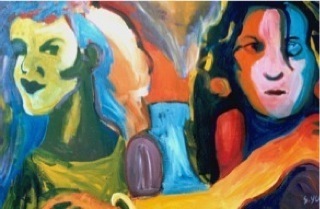
Published on September 24, 2011 13:34
•
Tags:
art, author-interview, ebook, giveaway, hell-s-fire, memoir, my-schizophrenic-life, prize, sandra-yuen-mackay, schizoaffective-disorder, win
Introducing author K. B. Walker and your chance to win a copy of one of her books!
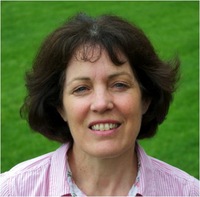
Today I am thrilled to be introducing you to author K B Walker. I've known Kimm for a few years now. I think she was one of the first authors I met when I started to think about self-publishing my books in about 2008. We've kept in touch since and she is a lovely person.
I enjoyed reading Kimm's poignant and inspirational memoir A Life Less Lost. I was excited to hear that Kimm has recently published a novel Once Removed. I'm very much looking forward to reading it. Kimm's a very talented writer. When I heard she had a new book out I decided it was about time I introduced her to all of you.
As well as agreeing to answer my questions, Kimm is very generously offering to give away a Kindle or pdf version of Once Removed and a paper version or a voucher for a digital copy of A Life Less Lost from Smashwords
To be in with a chance to win a copy of one of her books, please leave a comment below, or simply 'like' this blog post. Winners will be picked on 10th June 2012.
Here's my interview with Kimm:
I read your memoir 'A Life Less Lost' in 2009. It's very moving and inspirational. What made you decide to publish a memoir at the time?

It was a story I wanted to tell and in 2004 I finally had the opportunity. The first draft poured out in 4 months but then it took 5 years to polish it. By that time I was doing speaking engagements and people were disappointed there weren’t copies to buy. When I had the opportunity to speak alongside Adrian Plass, I decided I couldn’t wait for the slow wheels of publishing and did it myself.
Your son's battle with cancer is featured prominently in your memoir. Has he read the book, and if so did he give you any feedback on it?
A very interesting question, Maria. James gave me permission to write and sell the book but he hasn’t read it. His father and brother have and were surprised by the different ways in which we each experienced and remembered what happened. James says it’s taken him long enough to come to terms with his own interpretation of events and he doesn’t want to cope with mine.
You self-published A Life Less Lost, but with your new book, a novel, you have decided to use a publisher. What was your reason for not self-publishing this time?
As you know, Maria, self-publishing is extremely hard work. But I was losing confidence in myself as a writer. I needed that seal of approval that someone who didn’t know me thought enough of my book to take a risk on it.
How did you go about looking for a publisher for your novel?
I studied the Writers & Artists Yearbook for people most likely to be interested in my story and then checked out their websites and submission guidelines. I met and spoke to a PR person at an author event and she asked to see a sample and recommended three publishers. But none of that came to anything. Once Removed doesn’t fit easily into any genres so was too risky for the more established houses. A friend suggested a few e-publishers who are trying to build a presence in the market and actively seek out new and unusual work. I studied their websites and went for Crooked {Cat} Publishing, who quickly signed me up.
I'm looking forward to reading your new novel, 'Once Removed'. Can you tell us a bit about it and how long it took to write?

It’s about a young teacher who suspects one of her pupils is self-harming. Abby risks everything to try to help Beth but it all goes horribly wrong. It looks at the impact relationships have on us but also the way in which our own self-image affects those relationships.
I’ve had much to learn about writing (I did science at university!) so have taken courses, worked my way through self-help books and written lots of other things alongside this novel and my memoir. In seven years, Once Removed has been through many transformations. I’m certainly hoping my next book will take less time!
You have said that an experience in high school gave you the idea for Once Removed. Are you able to elaborate on that?
In high school, a girl felt close enough to me to reveal the razor slashes she’d made in her legs. I didn’t know what to do. At fourteen, new to the school and recently bereaved, I basically ran away. But I still wonder about that girl and what’s happened to her. In the '90s, when self-harm was in the media, I did some research and a story was born which explores this complex behaviour through the eyes of these two characters.
I saw on your bio that before you published your memoir, you'd had several poems, short stories and articles published and won a handful of local prizes, as well as being invited to speak at events in the UK and US. Can you tell us a bit more about these?
I’ve won competitions run by Huddersfield Authors’ Circle, been shortlisted in a Huddersfield Literature Festival competition and won second prize in a short story magazine. I learned a great deal about dialogue working collaboratively on two radio plays, even though they weren’t taken up. These were early on, when I was writing widely to get feedback and learn the craft. I’ve had articles published in various places and edit my church magazine. My poems appear in several anthologies but my main passion is for novels. They are what I read and know the best.
The speaking events began out of the blue and grew from there. I did set up a mini ‘book tour’ when I went to the States to visit my family. We went to five states, slept in ten different beds and sold over seventy books. More sales have followed but they’ve been slow. I plan to do more promotion over the Internet, once things settle down with Once Removed.
You have a book trailer for Once Removed. Who produced that?
My youngest son, David, is a filmmaker working for Bluprint. He and a couple of friends made it for me as well as the one for A Life Less Lost.
What's your opinion of book trailers in general? Have you ever decided to buy a book after seeing the trailer?
Personally, I have such a huge pile of books I want to read I haven’t used book trailers but when you are an unknown author you have to try everything to get some attention.
Which do you prefer reading e-books or print, and why?
I resisted getting an e-reader for ages but eventually the shrinking luggage allowances convinced me and I love it! I read walking my dog and don’t need to take my mittens off to turn the page, can read while eating my lunch without the book closing and in bed without my hand getting cold. It’s dangerously easy to buy the next book immediately after finishing the last one, too.
Who are your favourite authors and what is it about their work that you like?
That’s a hard question! I like Jodi Picoult, although her books do get a bit samey. I love the way she explores complex social issues through realistic characters. That’s what I’ve tried to do with Once Removed. But I also love crime writers like Jo Nesbo and historical fiction authors like Bernhard Cornwelland Philippa Gregory. C.J. Sansom usefully combines both genres! I like interesting stories like A Thousand Splendid Suns and We Need to Talk About Kevin. I love the Fire and Ice fantasy series (A Game of Thrones ) even though I don’t usually like fantasy. I like anything with good characters and pace, really.
Are you working on any other books at the moment?
At the moment, I’m spending all my writing time trying to promote Once Removed. But next month I plan to get back to my new novel inspired by an agoraphobic woman who vanished.
When you're not writing, what's your favourite pastime?
Reading has been a passion all my life. I also enjoy sports like skiing, swimming, badminton and walking. I’ve a big soft spot for animals and live on a farm, although we’re not farmers. Baking, eating out, cookery programmes and cookbooks fill a big chunk of time. Recently I’ve discovered an interest in growing food, losing hours in the garden.
Thanks for being a fabulous guest, Kimm!
---------------------------------------------------------------------------------------------------
You can find out more about Kimm and her books at her website and on her publisher's website
And don't forget to leave a comment below, or 'like' this blog post for your chance to win a book! Good luck!
Published on May 23, 2012 13:10
•
Tags:
a-life-less-lost, author-interview, fiction, giveaway, k-b-walker, memoir, non-fiction, novel, once-removed
Interview with Jerry Castaldo & book giveaway!
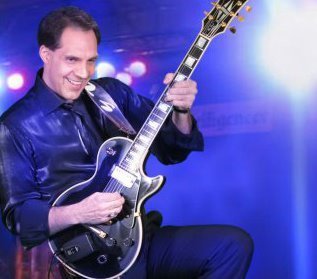
My guest today is an accomplished entertainer, Jerry Castaldo. He regularly plays over 300 shows a year. He has opened for such stars as Jerry Seinfeld, David Brenner and Dom Deluise.
Jerry Castaldo has enjoyed playing such well-known venues as the Trump Plaza Hotel and Casino in Atlantic City, NJ, and the Waldorf Astoria Hotel (including benefits honoring Christopher Reeve and Ray Charles). His repertoire spans the eras--everything from big-band favorites (he has also performed in concert with the Sammy Kaye Orchestra) to contemporary standards.
Watching him today, his audience would be unaware that twenty years ago Jerry was barely surviving. He had an addiction to drugs and alcohol and that led to criminal activity and even a suicide attempt. He is a survivor who proves that it's not impossible to turn your life around. In his memoir, Brooklyn NY: A Grim Retrospective, he has set out to explain his past and to be an example to people who may be going through similar struggles.
His book is a compulsive read. Jerry tells me that for the past two years it has been sitting at the #1 position in Top Rated Biographies and Memoirs of entertainers on Amazon.com: http://www.amazon.com/gp/top-rated/di...
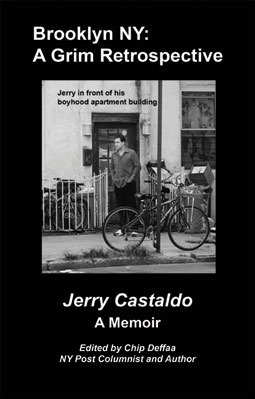
Jerry not only agreed to answer my interview questions, but also to give away a signed print copy of his book to one of my blog followers! To be in with the chance to win this book, all you need to do is leave a comment for Jerry below, or simply 'Like' this interview. A lucky winner will be chosen on 20th January 2013.
Here's my interview with Jerry:
Your autobiography is a very honest and no holds barred account of your life growing up in Brooklyn New York. You have admitted to various crimes that you were in involved in when you were a teenager and in your twenties, and to a serious drug addiction and alcohol abuse problem. In the introduction to your book, you have stated that you were warned by some people that you should not publish this book as it may damage your career; I understand you're now a successful entertainer in New York. What was the driving force behind your decision to publish this book, despite the warnings?
First off, thanks for having me. Great question, Maria. The driving force behind my decision to publish this book, even though many in my professional circle had advised me not to, is very simple. I wanted to explain to everyone, including those who I grew up with and to my extended family and friends, exactly what was going on with me back then and to let them know who I really was.
How long did it take you to write the book? Had you kept diaries about your life, or were you just writing from memory?
Over the last twenty years, I’d tell people some of the incredible things I’d experienced in my travels growing up in New York City and around the world, and I’d always get a wide-eyed, jaw-dropping response coupled with, “Man, you’ve ‘got’ to write a book!” So I started making notes, grouping my stories into chronological order, where things happened and with whom I was with. That took about two years, and then the book took another year to actually write. Because I wanted the book to “move,” I wound up using on thirty percent of my notes, sticking to the really interesting stuff. I guess it paid off, because if you browse the over 300 “Five-Star” reader reviews on Amazon and Barnes and Noble Online, you’ll read the same descriptions of my book from these readers, over and over, “Fast-paced”, “This book really moves,” “I couldn’t wait to read what happened next” and so on.
I agree with those reviewers' comments. It's a fast-paced book, and I was definitely hooked!
Was it difficult for you to dredge up the memories from the past in order to write the book? You had, after all, faced some very hard times, and you'd also attempted suicide. Was the writing process cathartic in any way, or did it just bring back bad memories that you would have preferred to have forgotten?
I have a very good memory, despite my long-term alcohol and drug use. Of course while you are under the influence, you have blackouts, so there are many things that happened to me that I’ll never remember. I used to wake up some mornings, laying in my bed bloodied and with my clothing torn, sort of like the werewolf did in the movie. But anytime that I wasn’t high, I remember lots of details. Yes, it was difficult to dredge up, but there was no way around it. I just had to tell my story. I think my mother had a harder time because she had to relive it all when she read the book.
You have stayed away from crime, drugs, and other negative addictions for about 20 years now. That's a great achievement. In your book you've described how your life up until your early thirties had been dogged with drug/alcohol addiction and the inevitable criminal activity resulting from that. You seemed to go through times when you were clean and then rebound into the destructive behaviour again. In your life, what do you think are the factors that have ensured you have been able to kick your previous habits and successfully resist going back down that route again for such a long time?
As I write toward the very end of my book, when I finally walked into an AA meeting, that was the turning point. I attended one or more meetings every single day for over one year. That solid “base,” beginning, is what ensured that I’d never go back. Of course, there’s no guarantee I’ll stay clean and that’s why it is important for me to stay connected to AA in some way, so that I know it’s there if I should need them. I’m still a drug addict and an alcoholic, and I will be for the rest of my life, so there is always a chance of relapse, although I feel confident that it won’t happen to me. And if it ever does, I will seek help. By the way, this is not an AA book and I don’t preach. I only mention that organization at the very end of my story as they were who helped me.
In your book, it is clear that you were aware that your habits in your younger years were having a destructive effect on your relationships with partners, friends, and family. Do you think that there was anything the people close to you could have done to prevent you getting back on the downwards spiral after you were clean, or to prevent your suicide attempts? Or were these things that ultimately you take responsibility for?
As most family members and friends who are fortunate enough to get their own help from the group “Al-Anon” know, there is absolutely nothing that they can do to help the addict. They can only love them and make sure that they do not help the addict in such a way that would allow the addict to continue to use drugs and alcohol. For example, by giving them money to buy drugs or alcohol, or giving them a place to live free of charge, they only enable the addict to continue to slowly kill themselves. As difficult as this is, they must more or less abandon the addict so that he or she can fall flat on their face and hit rock bottom. To enable the addict is to help the addict die.
If you could go back to Brooklyn in the '60s/'70s and talk to your old self, what piece of advice do you think you would give, and do you think he would listen?
That’s easy. I would have said to myself, “Jerry, get help! Counseling, join AA or NA.” I wished I’d been committed to some kind of rehab. Many, many years of pain and suffering, for both me and my family and friends, could have possibly been avoided, had I heeded the advice that I “was” given at various times during my addiction.
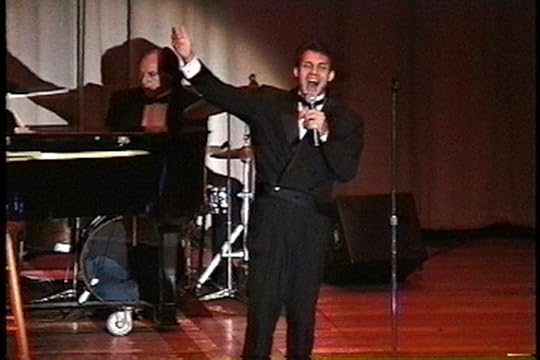
Do you think it is always the circumstances in a person's life that will cause him or her to get involved in addictive and self-harming behaviour, or do you think it's the individual who is responsible?
I think it can be either or, and also a combination of both of those things. Of course, there is no hard and fast rule to anything when it comes to this subject. But again, if there is a mentor or someone else who is in a position to help or guide someone starting to engage in this type of behavior, then that is always a great thing. Unfortunately, for me, I was totally out of control and even though my parents loved and cared for me, they were unable to do anything.
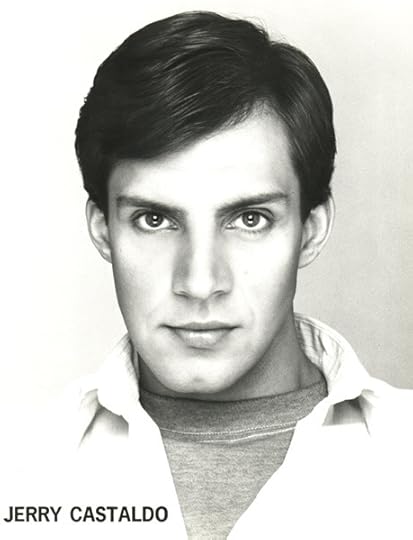
From reading your book, I know that becoming a successful entertainer, for you, was always a dream that you reached for, even in your darkest days. Now you are living your dream, with relative success in that field, is it everything you dreamed it would be? What plans/hopes do you have for your career, and where do you see yourself in 5 year’s time?
Ah, the “where do you see yourself in 5 years” question. I work on my career 24/7 and I don’t give much thought to the future. When I first got into rehab, I found one “slogan” to be the most helpful and I now find it to be the most useful. That slogan is, “Live in the now.” Of course I plan for the future regarding my finances, making sure I’m booked a year ahead at all times and that sort of thing, but I focus on living each day to the fullest and not projecting too much. If I can never get any further in my career, I’m OK with that because I’m performing all the time and am able to maintain a nice home and lifestyle for myself. That, coupled with eating right and exercising regularly, make for a great life for me. Plus, I have a supportive, loving family. What more could I ask for?
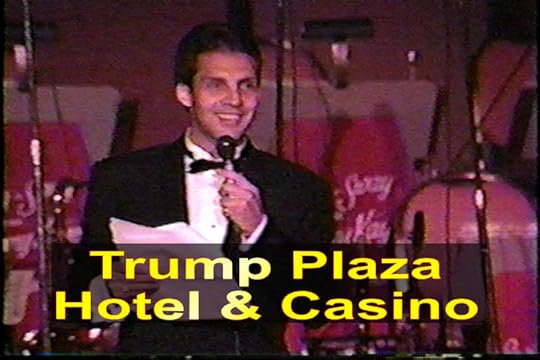
What do you hope people will get out of reading your book?
Hope, inspiration and the ability to be able to see the “real me.” Not the crazed, drug-addicted, violent criminal that I had morphed into as a teenager growing up on the streets of Brooklyn, NY.
I understand that your current career involves 300 shows per year. What kind of things do you do in your shows?
I am primarily a singer who does a one hour show of songs from “The Great American Songbook” as well as songs from the 1950s, 1960s and 1970s. I also play guitar in my show and I do some comedy by interacting with the audience. You won’t find me standing still on stage during my shows. I’m leaping, sliding and spinning.
As well as doing shows, you also record music. Do you have any albums or singles on sale that people can buy? If so, where can they buy them?
I have several original songs that I sing in my show that I plan to release on iTunes in the future. My original ballad, “When Did You Stop Loving Me?” is currently in production for a music video. A few months ago I was interviewed by one of the biggest radio shows in the US, “The Howard Stern Show,” and they also played my song on the air. I’m excited that such a hugely popular radio show, that has had up to 20 million listeners at times, has invited me back when the finished video is done. They also have an “On Demand” TV show of the radio show where snippets of my music video may play. You can view a two minutes video sneak preview of “When Did You Stop Loving Me?” on “You Tube” right now: https://www.youtube.com/watch?v=5Tczd...
Which entertainers were your favourites when you were growing up?
At age ten, I started playing guitar and started a band at eleven. We played a lot of The Rolling Stones, Led Zeppelin and other current rock songs in that vein. So I guess those bands we emulated were my favourites.
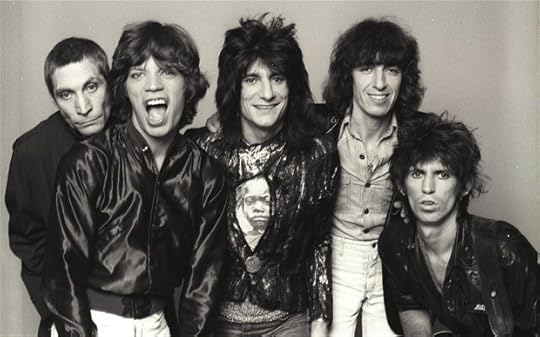
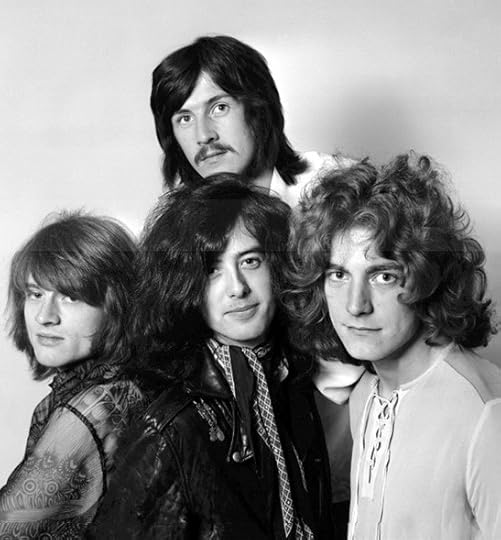
What sort of music do you like listening to?
My musical tastes run the gamut. I love everything. If I had to pinpoint any type of music that I wasn’t too excited about, I guess it’d be traditional Country music and “hard-core” rap.
Do you like reading? If so, what are some of your favourite books?
I love reading, and it was my favorite thing to do as a pre-teen. These days I’m mostly reading business related stuff though as I need to keep up with the entertainment industry as well as the book business. My favourite books have always been “self-help” types, such as “The Sky is the Limit” by Dr. Wayne Dyer. Other examples are, “The Road Less Traveled” and anything non-fiction that I can learn from.
Where are the best places for people to connect with you online?
Besides my website, www.jerrycastaldo.com, I’m very active on Facebook, You Tube and Twitter. Again, look for all of my music videos on my “You Tube” channel, along with acting videos of scenes and monologues that I’m using to increase my chances of securing more acting work.
Where can people buy your book?
Amazon, Barnes & Noble Online and most any other online bookseller. The huge Brooklyn Public Library recently gave “Brooklyn NY: A Grim Retrospective” a great review, and I’m excited to have so many other public libraries around the country carrying it. As far as “brick and mortar” bookstores, it’s hit or miss as to which ones choose to carry my book because the online booksellers seem to be where most readers find it easier to order from.
Do you have any news for your fans?
I’m excited to share that a couple of Independent film companies have contacted me about having my book adapted to a screenplay, but I’ll believe it when I see it, ha, ha. Also, I continue to perform about 300 of my music shows a year, mostly in the northeastern part of the US. Finally, please don’t forget to visit my “You Tube” channel, Friend me on FB or follow me on Twitter. It’s very exciting to be able to communicate directly with my readers and fans of my show. I make every effort to write everyone back. Wishing everyone a very healthy and happy 2013!
Happy 2013, Jerry! Thanks for taking the time out of your busy schedule to answer my questions. I wish you continued success with your career.
-----------------------------------------------------------------------------------------------------
Remember, for your chance to win a copy of Jerry's memoir, please leave a comment below or 'like' this post. Good luck!
Published on January 03, 2013 13:38
•
Tags:
alcoholism, brooklyn-ny-a-grim-retrospective, drug-addiction, entertainer, jerry-castaldo, memoir, music, nyc
Book Review: The Diary of a Young Girl - Anne Frank
 The Diary of a Young Girl by Anne Frank
The Diary of a Young Girl by Anne FrankMy rating: 5 of 5 stars
It goes without saying that this a life-changing book for anyone who reads it. I learnt about Anne Frank's Diary when I was a teenager, about the same age as Anne was when she wrote her diary. I decided to read it because I couldn't remember if I'd ever read the whole thing when I was younger or whether I only read certain parts.
It is fascinating because it's a diary; there is something intriguing about reading someone's diary anyway, but this is no ordinary diary. I couldn't help wishing for a different ending to this young girl's story even as I was reading it, even though I knew the ending already.
Anne was a very typical teenager with all the angst, all the dreams, all the hopes and insecurities. Her diary sets out the goings-on in the 'secret annexe' where she and her family along with another family and others were hiding from the Germans during World War II, for fear of being shot or taken to concentration camps. The daily fear that Anne and the others would have felt comes across so strongly in this journal. The way members of the household would argue over the littlest things gives us an idea of the amount of stress they were under. Despite all they were going through, it seems that the people in the annexe were ultimately always there for each other and they had grown close to each other, even though they often couldn't stand each other!
I found Anne's writing to be very thoughtful. It seemed that she was going through a difficult time trying to balance her own needs and trying to deal with her changing moods. In her final journal entry we get an insight into what the real Anne was like when she tells how she often hid her real self from the others because of what she feared they would say or how they'd react. She was definitely a deep thinker and there are many quotes floating around the Internet from this book, passages from this diary that make you think and make you question the world around us.
When the diary ends, it is an abrupt ending. It's heartbreaking because it's just another diary entry from quite a high-spirited Anne telling her diary (which she calls 'Kitty') about the day, and then the book ends. We all know that in the days that followed that diary entry the family would have been captured and taken away to the concentration camp where they were killed. It really brings home the fact that this young girl's life was cruelly cut short and that she had so much more to offer the world.
Anne Frank's dream was to be a journalist and then to become a world-famous author. Ironically, she achieved both of those dreams with this diary. This young girl's writing has captured the imagination of a generation. She was wise beyond her years and one thing she has taught us with this very honest diary is that people are human and we all have the potential for good and bad within us. Hopefully, one day her dreams of a more tolerant and peaceful world will also become a reality.
View all my reviews
Published on August 06, 2015 13:56
•
Tags:
anne-frank, diary, diary-of-a-young-girl, memoir, non-fiction, world-war-ii
Interview with Valerie Poore
Continuing my series of interviews with authors, today I have an interview with Valerie Poore. Val is a writer of both fact and fiction, and adult and children's books. She's a friendly and supportive author. I've been following her for a few years now.
INTERVIEW WITH VALERIE POORE
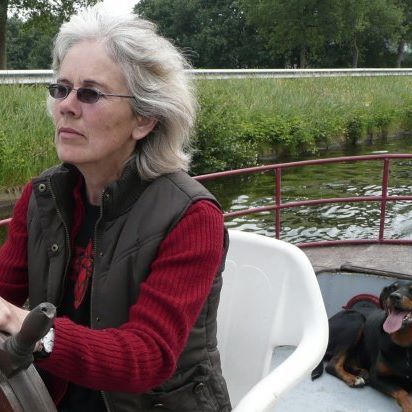
Hello, Val! Welcome to my blog.
Maria, thank you so much for inviting me here. It's lovely to be a guest on your blog as I've often enjoyed reading your guest posts before, so it's great to be here in the hot seat myself!
Thanks! Please introduce yourself
I like this question as it reminds me of giving presentations when I worked in marketing in South Africa. Always introduce yourself, they said. And half the time I'd forget and only remember half way through. Luckily, my audience used to laugh - well, mostly they did, so in some ways it was a good ice-breaker. But then introductions often are, aren't they?
Well, then who and what am I? I'm an indie writer living and working in Rotterdam, the Netherlands. I was born in London, grew up in the West Country, spent 20 years in South Africa and moved here permanently in 2001. My day job is teaching academic and business writing skills to students, graduates and staff at a Dutch university. That probably doesn't sounds much fun, does it? Actually, I really enjoy it and have lovely students. But, my own writing is something of a welcome break from teaching as I can be more adventurous and play with the language more than I can when I am trying to give students good tips, rules and tools for writing decent sentences.
Fiction writing is a great escape from reality :)
Where does your inspiration come from?
Mostly, it just comes from the world around me. I've been one of life's bit of flotsam in a way. I've washed up on more than a few shores in my time and for that I'm very grateful as it's given me the opportunity to satisfy my ongoing curiosity about people and places. When I was a child, I was fascinated by history, but I think now that it's really always been people who have interested me and that when I was young and living in the UK, learning how people lived in the past was what intrigued me. Then when I went to live in South Africa in my twenties, I had a whole bunch of new people to observe and learn about, so the history part moved onto the back burner. Since I've been pretty much settled in the Netherlands, and also spent three years commuting from Belgium, the life and people in these two countries have provided still more food for my curiosity. I love watching, listening and learning, and then trying to make sense of different customs and cultures in my own way. I think that's also why most of my books are memoirs.
I'm sure all that travelling has given great insight in different types of cultures and human nature
Tell us about your latest book.
My latest published book is Walloon Ways: Three years as a weekend Belgian, the fourth in my memoir series, and this one is about those three years as a weekender on a barge in Belgium. Actually, I was planning to live there full time, but I couldn't get decent paying work in Brussels, so I travelled up to Rotterdam on Mondays and back again every weekend. But even though I still worked in the Netherlands, I loved my time in Belgium and have very fond recollections and memories of the country, so I decided to write a book about them.

My current work in progress, however, is a novel set in South Africa and then I'm in the planning stages of a period novel set on the Dutch waterways during the second world war. It will be a sort of prequel to my first novel, The Skipper's Child, which is set in 1962.
Are there any characters in your books that are based on real people?
Oh yes, I based The Skipper's Child on my Dutch Partner's family background. He grew up on a barge and the family members in my book are very much inspired by his parents and sisters although the story is complete fiction.
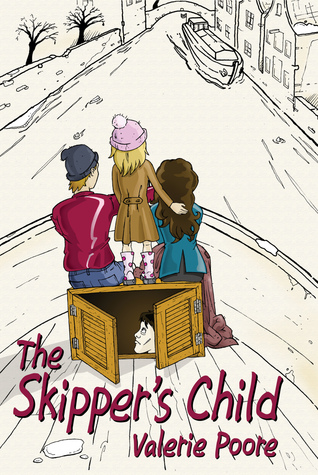
In my second novel, How to Breed Sheep, Geese and English Eccentrics, several of the characters are based on my own family (especially the more eccentric ones) but not all of them, and the main character, Maisie, is not me. I must admit that this book is a sort of cross between a memoir and a novel as so much of it is fact.
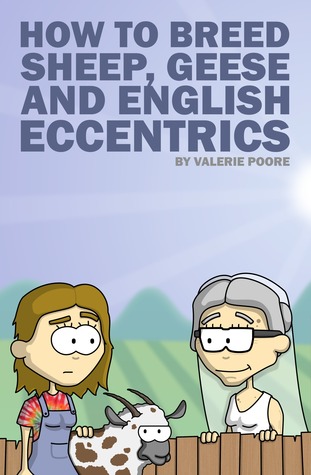
I love that title! :)
How long did it take you to write your last book?
Walloon Ways took me about six months to write, and then another four of five months to edit. What tends to happen is that when I make changes, I make new mistakes, so I have to proofread several times to try and get it right. My novels have all taken much longer than that though, even up to two years to complete.
Yes, I've found editing can seem like a never-ending process!
Do you do your own proofreading or use a professional? Anyone you’d recommend?
I like doing my own editing, although I'm open to suggestions - I just prefer to have the final say in what I do. However, I'd love to use a professional proofreader. Unfortunately, my income can't justify it yet, so I use Beta readers and I have English teacher friends who proofread it for me, but even after that, I edit and proofread over and over again. If I could afford to use a proofreader, I'd go for @ProofreadJulia, who I know from Twitter. She is so professional and has a great reputation.
How much research do you do when writing a book?
For my four memoirs I've only had to check accuracy of times, dates and events, etc. (memory can be fickle!), but for my novels, I've had to do quite a bit of research, especially for The Skipper's Child, when I needed to know a lot about the waterways and how they operated in the 1960s.
What’s your favourite genre to read?
I'll read almost anything, but oddly enough, my absolute favourite is Detective fiction. If I have a Donna Leon or a Deborah Crombie, you might as well not bother talking to me until I've finished. I just love a good crime novel, but I prefer mental puzzles to gore. I used to like Ian Rankin, but gave up on him when his books became very graphic in the descriptions of the murders and the sick minds behind them. I just couldn't cope with them. That said, I also love memoirs, particularly sailing and cruising memoirs or those that deal with moving to and living in other countries (those people again!). It's sort of why I started writing my own.
Do you listen to music when you write? If so, what type?
I can actually write anywhere at any time, so if I'm on a train, for instance, I don't listen to music, and if I'm at home, my partner is often watching YouTube films while I write, so I only get to listen to music when I'm alone. When that does happen, I listen to rock music. I love the music of the seventies and also the nineties but when writing I tend to listen most to JJ Cale. His music is wonderful to write by, and to drive by too.
Apart from writing, what are your favourite pastimes?
Working on my barge. I am never happier than when I'm doing jobs and maintenance that will keep it the thing of historic beauty that it is. I have an almost unhealthy love for my boat, the Vereeniging. Oh and I like playing the guitar and violin too, but I'm not very good as I don't practise enough. I just enjoy it tremendously.
Thanks so much for being a guest here, Val. I'm looking forward to finding time to read some of your books!
Thanks again, Maria! This was fun to do and it was a great selection of questions. I hope my answers give you an idea of who I am and what I write.
*************************************
Author links:
Blog: http://vallypee.blogspot.nl
Twitter: https://twitter.com/vallypee
Facebook Group: https://www.facebook.com/groups/river...
Amazon: http://www.amazon.co.uk/Valerie-Poore...
INTERVIEW WITH VALERIE POORE

Hello, Val! Welcome to my blog.
Maria, thank you so much for inviting me here. It's lovely to be a guest on your blog as I've often enjoyed reading your guest posts before, so it's great to be here in the hot seat myself!
Thanks! Please introduce yourself
I like this question as it reminds me of giving presentations when I worked in marketing in South Africa. Always introduce yourself, they said. And half the time I'd forget and only remember half way through. Luckily, my audience used to laugh - well, mostly they did, so in some ways it was a good ice-breaker. But then introductions often are, aren't they?
Well, then who and what am I? I'm an indie writer living and working in Rotterdam, the Netherlands. I was born in London, grew up in the West Country, spent 20 years in South Africa and moved here permanently in 2001. My day job is teaching academic and business writing skills to students, graduates and staff at a Dutch university. That probably doesn't sounds much fun, does it? Actually, I really enjoy it and have lovely students. But, my own writing is something of a welcome break from teaching as I can be more adventurous and play with the language more than I can when I am trying to give students good tips, rules and tools for writing decent sentences.
Fiction writing is a great escape from reality :)
Where does your inspiration come from?
Mostly, it just comes from the world around me. I've been one of life's bit of flotsam in a way. I've washed up on more than a few shores in my time and for that I'm very grateful as it's given me the opportunity to satisfy my ongoing curiosity about people and places. When I was a child, I was fascinated by history, but I think now that it's really always been people who have interested me and that when I was young and living in the UK, learning how people lived in the past was what intrigued me. Then when I went to live in South Africa in my twenties, I had a whole bunch of new people to observe and learn about, so the history part moved onto the back burner. Since I've been pretty much settled in the Netherlands, and also spent three years commuting from Belgium, the life and people in these two countries have provided still more food for my curiosity. I love watching, listening and learning, and then trying to make sense of different customs and cultures in my own way. I think that's also why most of my books are memoirs.
I'm sure all that travelling has given great insight in different types of cultures and human nature
Tell us about your latest book.
My latest published book is Walloon Ways: Three years as a weekend Belgian, the fourth in my memoir series, and this one is about those three years as a weekender on a barge in Belgium. Actually, I was planning to live there full time, but I couldn't get decent paying work in Brussels, so I travelled up to Rotterdam on Mondays and back again every weekend. But even though I still worked in the Netherlands, I loved my time in Belgium and have very fond recollections and memories of the country, so I decided to write a book about them.

My current work in progress, however, is a novel set in South Africa and then I'm in the planning stages of a period novel set on the Dutch waterways during the second world war. It will be a sort of prequel to my first novel, The Skipper's Child, which is set in 1962.
Are there any characters in your books that are based on real people?
Oh yes, I based The Skipper's Child on my Dutch Partner's family background. He grew up on a barge and the family members in my book are very much inspired by his parents and sisters although the story is complete fiction.

In my second novel, How to Breed Sheep, Geese and English Eccentrics, several of the characters are based on my own family (especially the more eccentric ones) but not all of them, and the main character, Maisie, is not me. I must admit that this book is a sort of cross between a memoir and a novel as so much of it is fact.

I love that title! :)
How long did it take you to write your last book?
Walloon Ways took me about six months to write, and then another four of five months to edit. What tends to happen is that when I make changes, I make new mistakes, so I have to proofread several times to try and get it right. My novels have all taken much longer than that though, even up to two years to complete.
Yes, I've found editing can seem like a never-ending process!
Do you do your own proofreading or use a professional? Anyone you’d recommend?
I like doing my own editing, although I'm open to suggestions - I just prefer to have the final say in what I do. However, I'd love to use a professional proofreader. Unfortunately, my income can't justify it yet, so I use Beta readers and I have English teacher friends who proofread it for me, but even after that, I edit and proofread over and over again. If I could afford to use a proofreader, I'd go for @ProofreadJulia, who I know from Twitter. She is so professional and has a great reputation.
How much research do you do when writing a book?
For my four memoirs I've only had to check accuracy of times, dates and events, etc. (memory can be fickle!), but for my novels, I've had to do quite a bit of research, especially for The Skipper's Child, when I needed to know a lot about the waterways and how they operated in the 1960s.
What’s your favourite genre to read?
I'll read almost anything, but oddly enough, my absolute favourite is Detective fiction. If I have a Donna Leon or a Deborah Crombie, you might as well not bother talking to me until I've finished. I just love a good crime novel, but I prefer mental puzzles to gore. I used to like Ian Rankin, but gave up on him when his books became very graphic in the descriptions of the murders and the sick minds behind them. I just couldn't cope with them. That said, I also love memoirs, particularly sailing and cruising memoirs or those that deal with moving to and living in other countries (those people again!). It's sort of why I started writing my own.
Do you listen to music when you write? If so, what type?
I can actually write anywhere at any time, so if I'm on a train, for instance, I don't listen to music, and if I'm at home, my partner is often watching YouTube films while I write, so I only get to listen to music when I'm alone. When that does happen, I listen to rock music. I love the music of the seventies and also the nineties but when writing I tend to listen most to JJ Cale. His music is wonderful to write by, and to drive by too.
Apart from writing, what are your favourite pastimes?
Working on my barge. I am never happier than when I'm doing jobs and maintenance that will keep it the thing of historic beauty that it is. I have an almost unhealthy love for my boat, the Vereeniging. Oh and I like playing the guitar and violin too, but I'm not very good as I don't practise enough. I just enjoy it tremendously.
Thanks so much for being a guest here, Val. I'm looking forward to finding time to read some of your books!
Thanks again, Maria! This was fun to do and it was a great selection of questions. I hope my answers give you an idea of who I am and what I write.
*************************************
Author links:
Blog: http://vallypee.blogspot.nl
Twitter: https://twitter.com/vallypee
Facebook Group: https://www.facebook.com/groups/river...
Amazon: http://www.amazon.co.uk/Valerie-Poore...
Published on July 03, 2016 07:46
•
Tags:
author-interview, children-s-books, fiction, interview, memoir, valerie-poore
Book Review: King Of The New York Streets, by Quentin R. Bufogle
 KING OF THE NEW YORK STREETS by Quentin R. Bufogle
KING OF THE NEW YORK STREETS by Quentin R. BufogleMy rating: 5 of 5 stars
I have read books and stories by this author before, so I knew he was a great writer and was intrigued to see that he had written a memoir. I like memoirs because in general it's like reading someone's diary and I've always been curious about the way people think and behave. This is a pacy, compulsive read. It's a no holds barred, honest account of the author's life as a teenager growing up in New York in the '60s and '70s. It is more or less centered around his quest for love as a young man, and there are some touching and poignant memories brought to life when he talks about the women he encountered. It is in many ways a love story. However, there are plenty of ups and downs in his romantic dalliances, all of which are interesting to read. It's not only about a young man chasing girls, however, this memoir has a depth that is captivating. The author has a way of connecting with the reader by including references to the past that conjure nostalgia. There are also stories about his time as a boxer, his ancestry and family background, and anecdotes about crazy things he and his friends got up to, all of which are entertaining. One of the things this writer does well is intersperse humour into his writing and this makes it all the more engaging. Quentin R. Bufogle has done a brilliant job of telling his story and it's a story that will resonate with many, I'm sure.
View all my reviews
Published on September 01, 2021 15:37
•
Tags:
king-of-the-new-york-streets, memoir, quentin-r-bufogle
Book Review: Fathers, Brothers, and Sons: Surviving Anguish, Abandonment, and Anthrax, by Frank Bello
 Fathers, Brothers, and Sons: Surviving Anguish, Abandonment, and Anthrax by Frank Bello
Fathers, Brothers, and Sons: Surviving Anguish, Abandonment, and Anthrax by Frank BelloMy rating: 5 of 5 stars
I really enjoyed this book. I've been an Anthrax fan since 1989, when I first saw them in concert at Hammersmith Odeon. Since then, I have seen the band live many times and Frank Bello always brings lots of enthusiasm and passion to his performances. I've seen many of the band's interviews over the years, so when reading the book it was easy to imagine Frank speaking and saying all of the stuff in the book. At the start of the book Frank says that he wanted it to be like a conversation between him and the reader over a cup of coffee or a beer, and it really does come across like that. Frank and his co-writer Joel McIver have done a great job, bringing all of Frank's memories alive and presenting the book in a way that is both compulsive and entertaining reading.
The foreword is written by Gene Simmons from Kiss and it's a great introduction to what is to come. The relationship between Frank and Gene started off with Frank being a bit of an annoying fan of Kiss who used to follow them everywhere, but it has since grown, and there is now a mutual appreciation that comes across.
The one thing that stands out when reading Frank's story is how he is very down to earth, and unlike many artists—especially artists as successful as he is—there is no ego problem. He appreciates that without fans he wouldn't be where he is and his gratitude is evident in the way he writes his story. His story demonstrates that the band have never taken anything for granted and always strive to produce the best music they can, seeing the relationship between bands and fans as a two way street.
The chapters that reflect on Frank's time in Anthrax make interesting reading. Although I knew a lot about the band, being a long-time fan, I learned a lot too; for example, how close they were with other bands that they toured with. Some of the stories of the antics on tour are fun to read.
But the book is not all about Frank's experience as a bassist in Anthrax, it also has a great deal of content about his personal life. His early life was far from easy and he has written his story with honesty and wisdom. We learn that one of the reasons he wrote the book was to help others and to talk about life lessons he has learned that he can pass on. He has certainly had a lot of experiences that many will relate to and perhaps find some inspiration or comfort from.
Another stand out thing from this book is the theme of tragedy that runs through it. Franks talks about his own mental health struggles when his younger brother was murdered and does so in a very open and honest way. He recollects other losses and how his experiences have made him live his life differently. He definitely has a great deal of wisdom to pass on with this book.
Frank Bello's love of music comes across from page one, and any music fan will instantly feel a connection when reading about his obsession with bands and music. One thing I learned from this book was that as well as being a musician, Frank has also trained as an actor. I wasn't aware that he had serious aspirations to be an actor alongside his musical career. His stories relating to that are very interesting.
"Fathers, Brothers, and Sons" is the story of a music lover who became a famous musician and has somehow managed to keep his feet on the ground. Frank comes across as fun-loving and sensible at the same time. It's a touching and honest account of a man's journey through life from childhood to fatherhood. Frank has had to deal with many tragic and heartbreaking events, however, he has endeavoured with this book to pass on some of the lessons he has learned from the ups and downs. It makes entertaining, thought-provoking reading.
If you are an Anthrax fan, this is a must-read book, but generally I think it would also be of interest to a wider audience. Frank Bello has a story to tell and his life lessons are well worth reading.
View all my reviews
Published on December 27, 2021 08:41
•
Tags:
abandonment, anguish, anthrax, autobiography, band, fathers-brothers-and-sons, frank-bello, heavy-metal, joel-mciver, memoir, music, surviving



